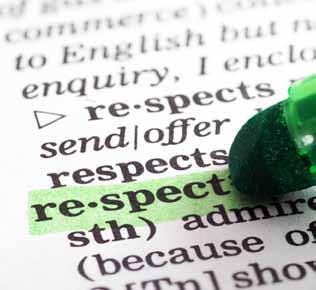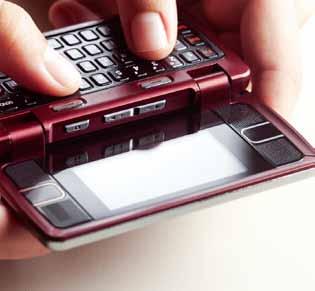
4 minute read
big kids [6–9
So,you have been hammering into your big kid’s brain since the beginning of time, “What do you say?” Now your bid kid is ready for other forms of etiquette they can rely on forever.
please, thank you…now what?
Teaching proper manners is really about interacting with other people. It’s about showing an appreciation for words said, kind gestures demonstrated or gifts given. Here are four areas of etiquette you don’t want to forget:
• ahh…hum One of the hardest lessons for a child to learn—is waiting. Whatever is on their mind, they need to spew it RIGHT NOW! Help your child learn the art of un-interrupting:


Teach him what things deserve interrupting. Need a cookie? Don’t interrupt. Someone is hurt or the house is on fire? Yes, interrupt.
Teach your big kid that yelling, “MOM” isn’t the right way to get your attention. Teach him to wait for a pause in the conversation and then to say, “Excuse me.” Remember to acknowledge his good manners with a thank you even if you don’t address his request at that exact moment. When your big kid is interrupting make sure you don’t answer the request. Too often we will reprimand him and in the next breath answer his interrupting request. Instead, look your interrupting big kid in the eye and tell him you’ll be with him in a minute and make sure you mean it. Don’t forget!
• hi ya Teaching your big kid to properly greet someone is a valuable social skill. Using Hello, Good Morning, Good-Bye and Good Night are four simple greetings that go a long way. Stress the importance of making eye contact when greeting someone.
• you shouldn’t have A thank you note is a great way to help your big kid understand the importance of gratitude. Odds are your big kid is going to enjoy the gift opening far more than the thank you note writing, but it is important and an excellent habit to instill. Explain that writing the note makes our loved one feel happy and it tells them we appreciate the time, effort and money spent on the gift. And no email! Write it out.
• ah shucks Another part of being a polite, well mannered individual is knowing how to respond to compliments. Teach your big kid to make eye contact, smile and simply say “Thank You.” what is it
Whenthe word respect comes up you might first be reminded of the Aretha Franklin hit…”r-e-sp-e-c-t, find out what it means to me.” Well what does it mean to you and your tween?
Respect is an attitude and a two way street. You have to respect and value yourself in order for others to respect a survey conducted by Public Agenda found 60% of participants agreed that even when parents try to "raise their kids right," there are too many negative role models in society that teach kids to be disrespectful you. Respect shouldn’t be confused with obedience nor should self-respect and self-esteem be interchanged. Obedience can come out of fear not respect. Respect is an understanding that you as the parent have your child’s best interests at heart. Self-respect is “a proper sense of one’s own dignity and integrity” while self-esteem is defined as “respect for or a favorable opinion of oneself” or “an unduly high opinion of oneself; vanity.” We want our tweens to think highly of themselves, but we want them to value the fact that they are unique and worthy rather than better than others and entitled.

So, how do we make sure our tweens have self-respect and show others respect? First we have to show them respect at home:
• my bad If you screwed up, admit it. And don’t forget to apologize too!
• I hear ya Be a good listener. Really listening to your tween shows you care about what they are saying.
• cross my heart Keep your promises. Show your tween you mean what you say.
• not so far Set limits. Yes, your tween is going to test boundaries, but be consistent and stand firm.

• thata boy When your tween exhibits respectful behavior, let them know you are proud of him.
Without respect for himself, peers, authority and so on, your tween is going to have a hard time being successful. Set expectations, model respectful behavior and take advantage of teaching moments every chance you get!
cell phone rudeness is the #1 complaint of diners

is inevitably a part of your teen’s life. From TV to video games to cell phones to social networking sites, technology is everywhere and a new gadget or website is introduced daily. But a rise in technology shouldn’t result in a decline in manners.
Technology
techno conduct
Seriously, have you seen how fast a teen can text? Their thumbs are flying around at the speed of light! Technology is a fast paced world of ever changing conveniences and it has changed the way we communicate. But you’re still the parent and just like you taught him to say please and thank you, you need to teach him technology etiquette as well:
• hang it up We see people everywhere talking on their cell phone or texting. Just because everyone is doing it doesn’t mean it is polite. Calling someone from the grocery store to answer a quick question is one thing, but to have a lengthy conversation in a coffee shop is not needed. Use common sense and teach your teen that in situations of face to face conversation, the phone doesn’t need to be brought out.
• email don’t Tone of voice is very important in a conversation, and you can’t inflict tone in an email so everything is up to interpretation. Trying to be funny or sarcastic might not come through in the typed words, so be safe and leave it out.
• be nice If you wouldn’t say it to someone’s face, don’t text it or put it on facebook! Or if you wouldn’t want someone texting or posting it about you, then don’t do it to them!
• clear consequences Discuss the punishment for breaking any of your technology rules and stand firm.
Yes, it is a different world for our teens than it was for us, but that doesn’t mean common courtesy and politeness are also a thing of the past. You can stay connected and have good manners.
Who is Sally?
She is our quintessential, “do-it-all” mom and friend who reminds us to remember the woman behind the mom.


